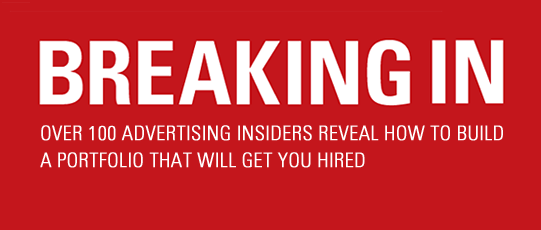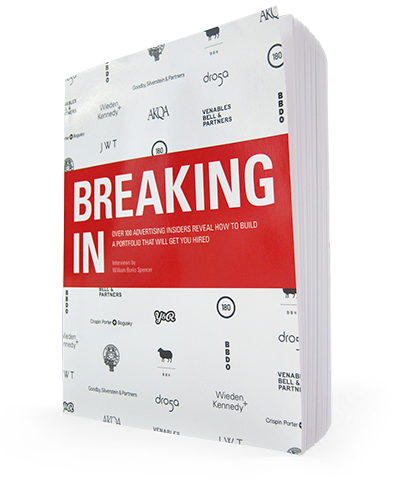Check out some great work from Ali Alvarez.
Interviewed at Fallon, London.
WS: What do you look for in a student book? And what impresses you?
AA: Originality of ideas and something that shows who they are as people. For some reason, students are all being given the same briefs and so you see the same kinds of products—and work—in their books. So I think they should try to find the products that just don’t feel “studenty,” something they’re interested in, and focus on great ideas, really. Although it’s nice to see things executed well, it comes down to ideas. Good Photoshop skills don’t count.
WS: And that was actually my next question. Do you think it’s important for things to be finished? And specifically for art directors?
AA: I guess for art directors, it’s more important. But I don’t know. I’m driven by ideas here. At Fallon it would definitely be more about the idea. And many places have got a really strong design department, so I definitely think I’d rather see strong thinking and help develop the execution.
WS: Do you think it’s important to have long copy in a book?
AA: Depends what you consider long copy. A very traditional ad with lots of words–no. The campaign Fallon did for Tate Britain that won the Grand Prix at Cannes was a long-copy poster, but was surprising because of who it was for. I want to see that people can write; there are lots of ways of showing that.
WS: What do you think of putting stuff in your book that is not advertising?
AA: I love it. Yeah, I really want to see it. In fact, if you didn’t have that in your book I’d be worried, “Is ads all you do?” I was just going to say too, about the long-copy thing, that doesn’t need to be an ad. It could be a short story. Or it could be a film that you’ve written and shot. I think these might be more well received if it were that kind of stuff than [advertising] because that doesn’t seem like as much of a chore to read. But I definitely, definitely want to see stuff that’s not advertising.
[ … ]
WS: Do you have any tips or advice on how to get better, or how to get into the industry?
AA: I think the best advice I could give is that you really have to edit the work. It’s much better to have four to five brilliant ideas than eight mediocre ones, or three that drag the rest down. And the only way you can edit it is by showing it to people. I made a list. Make the B list and A list and show it to everyone on the B list, be ruthless about the crits, and get it down to your best work. Show it again, be ruthless, and then start showing it to the A list. And keep editing through your whole career.


Comments are closed.